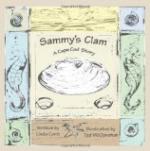And the funny part of it was that old man Dillaway was as much gone on him as the rest. For a self-made American article he was the worst gone on this machine-made importation that ever you see. I s’pose when you’ve got more money than you can spend for straight goods you nat’rally go in for buying curiosities; I can’t see no other reason.
Anyway, from the minute the count come over the side it was “Good-by, Peter.” The foreigner was first oar with the old man and general consort for the daughter. Whenever there was a sailing trip on or a spell of roosting in the Lover’s Nest, Ebenezer would see that the count looked out for the “queen,” while Brown stayed on the piazza and talked bargains with papa. It worried Peter— you could see that. He’d set in the barn with Jonadab and me, thinking, thinking, and all at once he’d bust out:
“Bless that Dago’s heart! I haven’t chummed in with the degenerate aristocracy much in my time, but somewhere or other I’ve seen that chap before. Now where—where—where?”
For the first two weeks the count paid his board like a major; then he let it slide. Jonadab and me was a little worried, but he was advertising us like fun, his photographs—snap shots by Peter—was getting into the papers, so we judged he was a good investment. But Peter got bluer and bluer.
One night we was in the setting room—me and Jonadab and the count and Ebenezer. The “queen” and the rest of the boarders was abed.
The count was spinning a pigeon English yarn of how he’d fought a duel with rapiers. When he’d finished, old Dillaway pounded his knee and sung out:
“That’s bus’ness! That’s the way to fix ’em! No lawsuits, no argument, no delays. Just take ’em out and punch holes in ’em. Did you hear that, Brown?”
“Yes, I heard it,” says Peter, kind of absent-minded like. “Fighting with razors, wan’t it?”
Now there wan’t nothing to that—’twas just some of Brown’s sarcastic spite getting the best of him—but I give you my word that the count turned yellow under his brown skin, kind of like mud rising from the bottom of a pond.
“What-a you say?” he says, bending for’ards.
“Mr. Brown was mistaken, that’s all,” says Dillaway; “he meant rapiers.”
“But why-a razors—why-a razors?” says the count.
Now I was watching Brown’s face, and all at once I see it light up like you’d turned a searchlight on it. He settled back in his chair and fetched a long breath as if he was satisfied. Then he grinned and begged pardon and talked a blue streak for the rest of the evening.
Next day he was the happiest thing in sight, and when Miss Dillaway and the count went Lover’s Nesting he didn’t seem to care a bit. All of a sudden he told Jonadab and me that he was going up to Boston that evening on bus’ness and wouldn’t be back for a day or so. He wouldn’t tell what the bus’ness was, either, but just whistled and laughed and sung, “Good-by, Susannah; don’t you grieve for me,” till train time.




